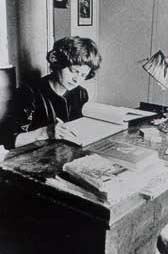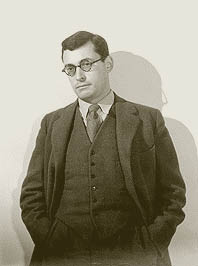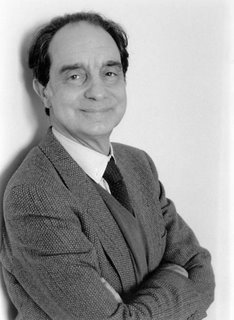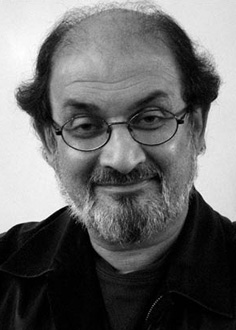Without further ado here is a most remarkable booklist for your reading,list-making and pondering enjoyment. Very special thanks to the compiler and to all the contributors, whose names appear at the top. This is a wonderful list!!
Believe that something important was missed? You can post it in the comments or you can, of course, email the compiler. Enjoy, Enjoy, Enjoy!!
Everyone’s Favorite Book List
Chrismukah 2005 compiled by Dianna Goodwin for the reading pleasure of her beloved son, Jacob Cohen, and others
Contributors to the list:
Aleta Albert, Laurie Anderson, Joe Blum, Jim Bogin, Francois Bonneville, Janet Britt, John Broderick, Mike Cassidy, Max Cohen, Rudi Cohen, Michael Cohen, Bobby Cohen, Robert “Grandpa” Cohen, Gavin Cook, Maddy deLone, Bodhi Densmore, Ramon Espinal, Josh Freeman, Frances Goldberg, Scott Goodspeed, Dianna Goodwin, Sarah Goodwin, Cynthia Guile, Betsy Hutchings, Alice Iida, Linda Illingsworth ,Nina Jakobi, Seth Jacobs, Martha Johnson, Susan Johnson, Penny Jolly, Julie Keegan, Peter Kenmore, Kris Kessey, Kristina Lambright, Joel Landau, Mimi Lavin, Satya Madivala, Tina Marlowe and two of her friends and one of her friend’s sons, Jake McCoola, Marika McCoola, Marcie Mersky, Naomi Meyer, David Seth Michaels, Joy Muller-McCoola, Karen Murtagh-Monks, Linda Motzkin, Mary Ellen Natale and one of her co-workers, Elisabeth Nemeth, Titus Nemeth, Mary Ellen Pierce, Russell Pittinger, Spencer Pittinger, Trudi Renwick, Jay Rogoff, Jonathan Rubenstein, Shira Rubenstein, Sean Ryan, Karin Sharp, Sarah Schendel, Joy Smith, Debbie Strod, Eran Strod, Anna Sugarman, Volker Thurm-Nemeth, Andy Turso, Janice Turso, Thilo Ullman, Aldo Vacs, Lin Whittle, Helen Wilson, Mary Withington, and Martina Zobel. Numbers in parentheses refer to number of people recommending the book.
Chinua Achebe Things Falls Apart (2)
Douglas Adams Hitchhiker’s Guide to the Galaxy
Chimamanda Ngozi Adichie Purple Hibiscus
Christopher Alexander A Pattern Language
Isabel Allende The House of Spirits
Paula
Julia Alvarez In the Time of the Butterfly
Jorge Amado Gabriela, Clove and Cinnamon
The American Canon - Emerson, Hawthorne, Poe, Whitman, Twain and Melville -any and all
Kingsley Amis The Green Man
A.R. Ammons Sphere
Jose Arguedes Deep Rivers
David Ariel The Mystic Quest: An Introduction to Jewish Mysticism
Margaret Atwood Cat’ Eye
The Robber Bride
Jean Auel Clan of the Cave Bear
Marcus Aurelius Meditations
Jane Austen Pride and Prejudice
Julian Barnes The History of the World in Ten and ½ Chapters (2)
Richard Bach Jonathan Livingston Seagull
Illusions
Ingeborg Bachman Darkness Spoken: Collected Poems
Three Paths to the Lake
James Baldwin anything
Pat Barker Regeneration
Giorgio Bassani The Garden of the Finzi-Continis
Frederic Bastiat The Law (available on the internet)
Vicki Baum The Weeping Wood
Simone de Beauvoir The Mandarins
Samuel Beckett Waiting for Godot
Ernst Becker The Denial of Death
Saul Bellow Adventures of Augie March
John Berger About Looking
Once in Europa
Benson Bobrick Angel in the Whirlwind
Giovanni Boccaccio The Decameron
Jorge Luis Borges Collected Fictions (2 - one person recommended the story Dream Tigers)
Labyrinths
Paul Bowles The Stories of Paul Bowles
TC Boyle East is East
The Road to Wellville
Taylor Branch Parting the Waters: America in the King Years 1954-1963
Vera Brittain Testament of Youth
Charlotte Bronte Jane Eyre
Emily Bronte Wuthering Heights (2)
James Brown I Feel Good: A Memoir of a Life of Soul
Norman Brown Life Against Death
Dorothy Bryant The Kin of Ata are Waiting for You
Pearl Buck The Good Earth
Mikhail Bulgakov The Master and Margarita
Anthony Burgess Earthly Powers
Fox Butterfield All God’s Children
Italo Calvino The Baron in the Trees
If By Chance a Traveler
Imaginary Cities
Albert Camus The Myth of Sisyphus
The Plague
The Stranger (2)
Orson Scott Card Ender’s Game
Alejo Carpentier The Lost Steps
Reasons of State
Bruce Catton The Army of the Potomac
Miguel de Cervantes Don Quixote
Anton Chekov The Cherry Orchard
Henry Charriere Papillon
Susanna Clarke Jonathan Strange and Mr. Norrell (2)
James Clavell Shogun
Paulo Coelho The Alchemist
J.M. Coetzee Disgrace
Waiting for the Barbarians (2)
Joseph Conrad Heart of Darkness (2)
Nostromo
Julio Cortazar Hopscotch
Bryce Courtenay Power of One
Steve Covey The Seven Habits of Highly Effective People
A.J. Cronin The Citadel
Clive Cussler anything
Dante Inferno (an annotated prose, not poetry, version)
Kiana Davenport Shark Dialogues
Mike Davis City of Quartz
Jeffrey Deaver Bone Collector
Robinson Davies The Deptford Trilogy, first volume is Fifth Business
Daniel Defoe Robinson Crusoe
Isaac Deutscher The Prophet Armed (2)
The Prophet Unarmed (2)
The Prophet Outcast (2)
Charles Dickens Bleak House (2)
Dombey and Sons
E.L. Doctorow City of God
John Donne Poems
John Dos Passos 1919
Fyodor Dostoevsky The Brothers Karamazov (2)
Crime and Punishment (2)
W.E.B. Dubois The Life of John Brown
Alexander Dumas The Count of Monte Cristo (unabridged)
The Three Musketeers
Barrows Dunham Man Against Myth
Dorothy Dunnett Niccolo Rising
Shlomo Dunour Adiel
Susan Eaton The Other Boston Busing Story
Humberto Eco Baudolino
Blake Edgar William Morris: Man Adorned
David Eggers A Heartbreaking Work of Staggering Genius
Albert Einstein and
Leopold Infeld The Evolution of Physics
George Eliot Middlemarch (2)
Joseph Ellis American Sphinx: The Character of Thomas Jefferson
Founding Brothers
His Excellency: George Washington
Jeffrey Eugenides Middlesex (3)
Ann Fadiman Ex Libris
Richard Farina Been Down So Long It Looks Like Up to Me
Paul Farmer Infections and Inequalities: The Modern Plagues
William Faulkner Absalom, Absalom
As I Lay Dying (2)
Light in August
The Sound and the Fury (3)
Eva Figes The Seven Ages of Women
Victoria Finlay Color: A Natural History of the Palette
F. Scott Fitzgerald The Great Gatsby
Jonathan Safran Foer Everything is Illuminated
Extremely Loud and Incredibly Close
Ken Follett Pillars of the Earth (3)
Ford Maddox Ford The Good Soldier (2)
Parade’s End
Paul Michel Foucault The Foucault Reader
John Fowles The Magus
Victor Frankl Man’s Search for Meaning (2)
Gerturde Friedberg The Revolving Boy
Jonathan Franzen The Corrections
Richard Friedman Who Wrote the Bible?
Thomas Friedman The World is Flat: A Brief History of the 21st Century
Carlos Fuentes Aura
Jostein Gaarder Sophie’s World: A Novel about the History of Philosophy
Neil Gaiman Ananzi Boys
Good Omens
Gabriel Garcia-Marquez Memories of my Melancholy Whores
One Hundred Years of Solitude (8)
Joaquim Gasquet Cezanne
Allen Ginsberg Howl
Malcolm Gladwell Blink
Emma Goldman Living My Life
Nadine Gordimer Burgher’s Daughter (2)
Bernard Gottfryd Anton the Dove Fancier
Stephen Jay Gould The Mismeasure of Man
A Wonderful Life: the Burgess Shale and the Nature of History
Katherine Graham Personal History
Henry Green Back
Romesh Gunesekera Reef
Peter Guralnick Careless Love: The Unmaking of Elvis Presley
Mark Haddon The Curious Incident of the Dog in the Nighttime
Bruce Hainley Tom Friedman
David Halberstam The Best and the Brightest
Peter Hamill Forever
Thomas Hardy Far from the Madding Crowd (2)
Jude the Obscure (2)
The Mayor of Casterbridge
Tess of the D’Ubervilles
Marvin Harris Cannibals and Kings: The Origins of Culture
Cows, Pigs, Wars and Witches
Kent Hauf Plainsong
Nathaniel Hawthorne The Scarlet Letter
Henry Hazlitt Economics in One Lesson
Ursula Hegi Stones from the River
Robert Heilbroner Economics Explained
Robert Heinlein Stranger in a Strange Land
Joseph Heller Catch-22 (2)
Lillian Hellman Scoundrel Time
Ernest Hemingway The Old Man and the Sea
Sun Also Rises
Hazel Henderson Beyond Globalization
Tony Hendra Father Joe
Frank Herbert Dune
John Hersey The Wall
Hermann Hesse Siddhartha (3)
Maurice Herzog Annapurna
Carl Hiaasen Sick Puppy
Adam Hochschild King Leopold’s Ghosts
Abbie Hoffman Steal This Book
Homer The Iliad (2)
The Odyssey (Robert Fagel’s translation)
Khaled Hossein The Kite Runner (6)
John Irving A Prayer for Owen Meany
Kazuo Ishiguro The Remains of the Day
Jane Jacobs The Economy of Cities
CLR James Black Jacobins
Beyond a Boundary
Henry James The Portrait of a Lady
Julian Jaynes The Origin of Consciousness and the Breakdown of the Bicameral Mind
George Jones I Lived to Tell It All
Erica Jong Fear of Flying
James Joyce Ulysses (2)
Sebastian Junger The Perfect Storm
Pauline Kael For Keeps
Franz Kafka In the Penal Colony
The Castle (2)
The Metamorphosis
The Trial )2)
Ryszard Kayuschinski The Shah
Nikos Kazantzakis Zorba the Greek
Jack Kerouac Dharma Bums
On the Road (3)
Satori in Paris
Ken Kesey Sometimes a Great Notion
Sue Monk Kidd The Secret Life of Bees (2)
Stephen King Christine
It
The Shining
The Stand
Tommyknockers
Barbara Kingsolver The Poisonwood Bible (4)
Naomi Klein No Logo
Arthur Koestler Thieves in the Night
Thomas Kuhn The Structure of Scientific Revolution (2)
Milan Kundera The Book of Laughter and Forgetting (2)
The Unbearable Lightness of Being
Hanif Kureishi Intimacy
Jhumpa Lahiri Interpreter of Maladies (2)
Wally Lamb She’s Come Undone
This Much I know is True
Anne LaMott Bird by Bird
Lao Tsu Tao Te Ching
DH Lawrence Sons and Lovers
Ursula LeGuin The Dispossessed
Doris Lessing The Children of Violence series
Denise Levertov Footprints
Primo Levi The Periodic Table
The Reawakening (2)
Survival in Auschwitz (4)
Vargas Llosa The Green House
Malcolm Lowry Under the Volcano
James Lovelock Gaia
Lu Xun Diary of a Madman
Niccolo Machiavelli The Prince
Mad Magazine any of them
Betty Mahmoody Not Without My Daughter
Norman Mailer Armies of the Night
The Executioner’s Song
Miami and the Siege of Chicago
The Naked and the Dead (2)
David Malouf An Imaginary Life
Bernard Malamud The Complete Stories
Andre Malraux Man’s Fate
Heinrich Mann Henry Quartre, King of France
Thomas Mann The Magic Mountain
Herbert Marcuse One Dimensional Man
Marge all Little Lulu comics
Yann Martel Life of Pi
Karl Marx The Economic and Philosophic Manuscripts of 1844
The Eighteenth Brumaire of Louis Bonaparte
Kyle Maynard No Excuses
James McBride The Color of Water
Robert McCammon Boy’s Life
Cormac McCarthy All the Pretty Horses (2)
David McCullough John Adams
Ian McEwan Atonement
Dennis McFarland Prince Edward
Ian McHarg Design with Nature
Larry McMurtry Lonesome Dove
Herbert Melville Moby Dick (5)
Steven Millhauser The Life and Death of Edwin Mullhouse
John Milton Paradise Lost
David Mitchell Cloud Atlas
Rohinton Mistry A Fine Balance (2)
James Michener Chesapeake
The Source
Richard Moody The Black Veil
Elsa Morante History: A Novel
Tony Morrison Beloved (2)
Song of Solomon (2)
Robert Musil The Man Without Qualitites
Vladimir Nabakov Lolita
Pale Fire (2)
NACLA Guatemala - The War is not Over
Azar Nafisi Reading Lolita in Tehran
VS Naipaul A House for Mr. Biswas
Pablo Neruda Memoirs
Friedrich Nietzche The Antichrist
Thus Spoke Zarathustra
Sigrid Nunez The Last of Her Kind
Patrick O’Brian Aubrey/Maturin novels
Flannery O’Connor The Complete Stories
Mary Oliver Dreamwork
Charles Olson Human Universe and Other Essays
George Orwell Homage to Catalonia (4)
Road to Wiggin Pier
Blaise Pascal Pensees
Ann Patchett Bel Canto
Harvey Pekar American Splendor comic books
Gregor Piatigorsky Cellist
Marge Piercy Gone to Soldiers
Walker Piercy The Moviegoer
Robert Pirsig Zen and the Art of Motorcycle Maintenance (3)
Sidney Poitier The Measure of a Man: A Spiritual Autobiography
Chaim Potok The Chosen
Randall Price The Stones Cry Out
Howard Pyle King Arthur and the Knights of the Round Table
Thomas Pynchon Gravity’s Rainbow
V
Raymond Queneau Zazie in the Metro
Anna Quindlen Blessings
Baba Ram Dass Be Here Now
Ayn Rand The Fountainhead
John Rawls A Theory of Justice
Rainer Maria Rilke Letters to a Young Poet
Lawrence Rinder Tim Hawkinson
Tom Robbins Fierce Invalids Home from Hot Climates (2)
Skinny Legs and All
Philip Roth American Pastoral
The Counterlife
Salman Rushdie Midnight’s Children (3)
Bertrand Russell Why I Am Not a Christian
Joseph Sacco Palestine
Safe Area Goradze: The War in Eastern Bosnia
J.D. Salinger Catcher in the Rye
Jose Saramago Blindness (2)
Frank Schaeffer Saving Grandma
Rafik Schami A Hand Full of Stars
Bernhard Schlink The Reader
Schoolboys of Barbiana Letter to a Teacher
Penninah Schram Jewish Stories One Generation Tells Another
Andre Schwartz-Bart The Last of the Just
W.G. Sebald The Emigrants (2)
William Shakespeare Hamlet
King Lear (2)
The Merchant of Venice
Othello
The Tempest
Neil Sheehan A Bright and Shining Lie (2)
Sharon Shinn Archangel and Jovah’s Angel
Isaac Bashevis Singer In My Father’s Court
Endo Shusaku Silence
Shel Silverstein Where the Sidewalk Ends
Jane Smiley A Thousand Acres
Zadie Smith White Teeth (2)
Art Spiegelman Maus
Mickey Spillane The Big Kill
Alexander Solzhenitsyn Cancer Ward
Susan Sontag Regarding the Pain of Others
John Steinbeck Cannery Row
The Grapes of Wrath (3)
Richard Steins Arthur Ashe
Stephen Stern The Angel of Forgetfulness
Darin Strauss Chang and Eng
Michael Talbot The Holographic Universe
Josephine Tey Daughter of Time
William Thackery Vanity Fair
Sashi Tharur The Great Indian Novel
D.M. Thomas The White Hotel
Dylan Thomas Collected Poems
Thucydides The History of the Peloponnesian War
J.R. Tolkien The Hobbit
Lord of the Rings (2)
Leo Tolstoy Anna Karenina
John Kennedy Toole A Confederacy of Dunces (2)
Leon Trotsky History of the Russian Revolution
Barbara Tuchman The Guns of August
Ivan Sergeevich Turgenev Fathers and Sons
Mark Twain Huckleberry Finn
King Leopold’s Soliloquy (available on line)
Any non-fiction
Barry Unsworth Sacred Hunger
John Updike Rabbit, Run
Leon Uris Trinity
Luis Alberto Urrea Hummingbird’s Daughter
Thorstein Veblen The Theory of the Leisure Class
Voltaire Candide (2)
Mildred Walker The Brewer’s Big Horse
The Quarry
Amanda Ward Sleep Toward Heaven
Evelyn Waugh Scoop
Max Weber Politics as a Science
Politics as a Vocation
T.H. White The Once and Future King (get past first story)
Walt Whitman Leaves of Grass
Benjamin Lee Whorf Language, Thought and Reality
Tom Wicker A Time to Die
Elie Wiesel Night
Daniel Wilkinson Silence on the Mountain
Gershon Winkler Magic of the Ordinary: Recovering the Shamanic in Judaism
P.G. Wodehouse Blandings Castle
Psmith
Stories - Especially The Great Sermon Handicap and The Purity of the Turf
Christa Wolf A Novel and Four Essays
The Quest for Christa T
Virginia Woolf To the Lighthouse
Orlando (2)
Stuart Woods New York Dead
Malcolm X The Autobiography of Malcolm X (2)
Emily Yoffee What the Dog Did
James Yood William Morris: Animal/Artifact
Marguerite Yourcenar Memoirs of Hadrian
With Open Eyes
Carlos Luis Zafon The Shadow of the Wind (2)
Howard Zinn A People’s History of the United States (2)
To add to the list, please email the keeper of the list at diannagoodwin@yahoo.com














